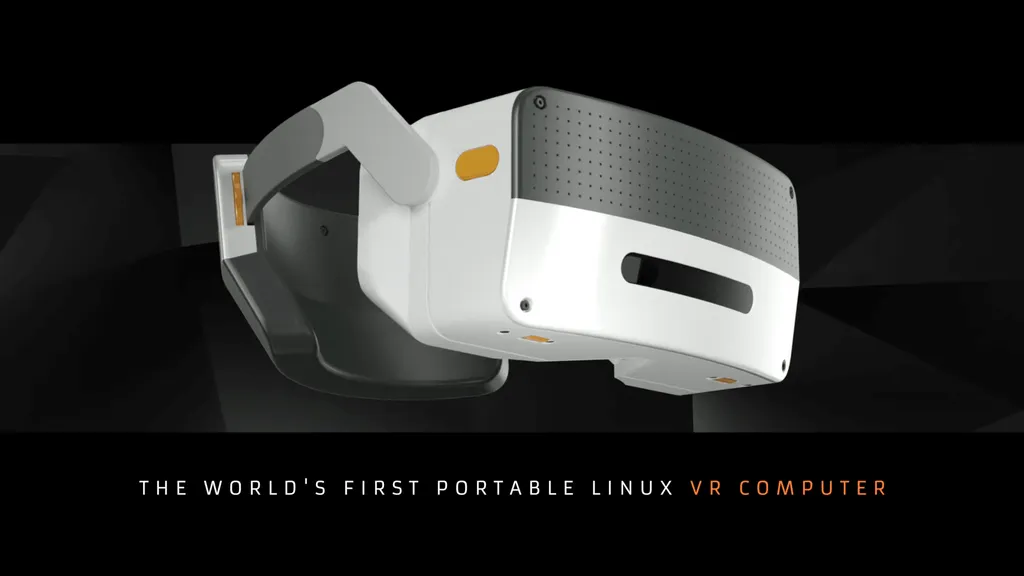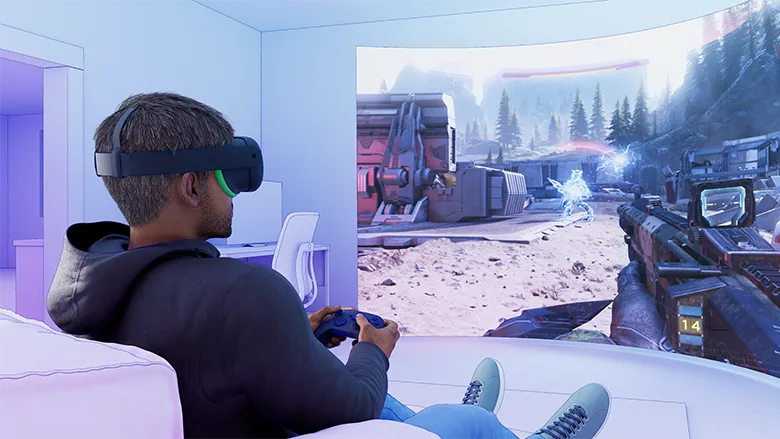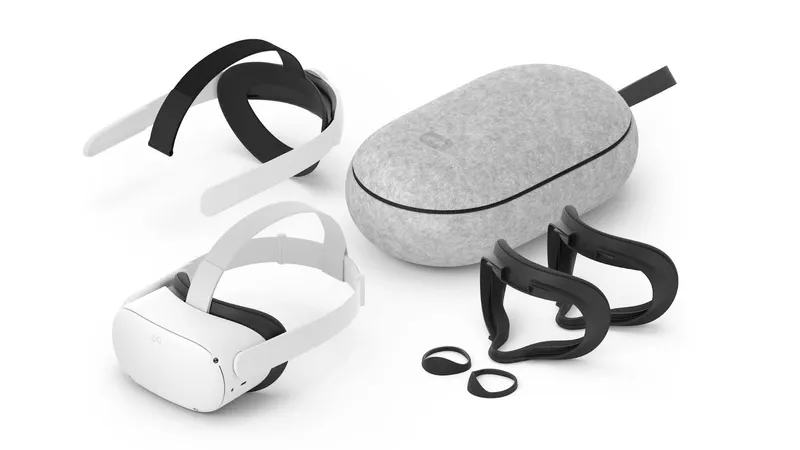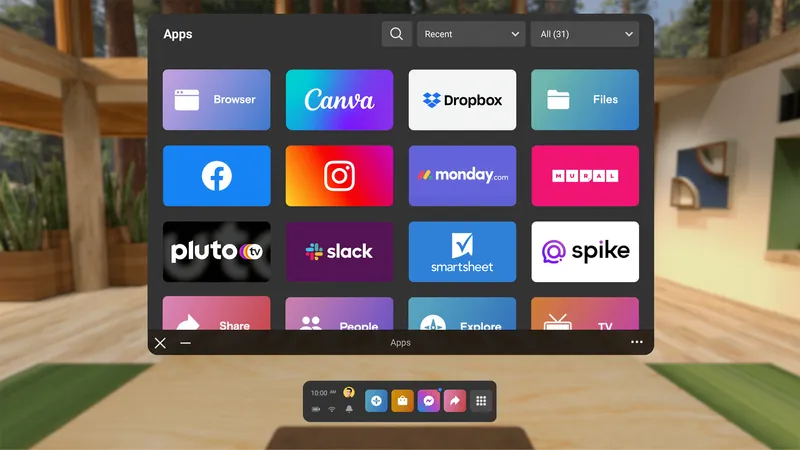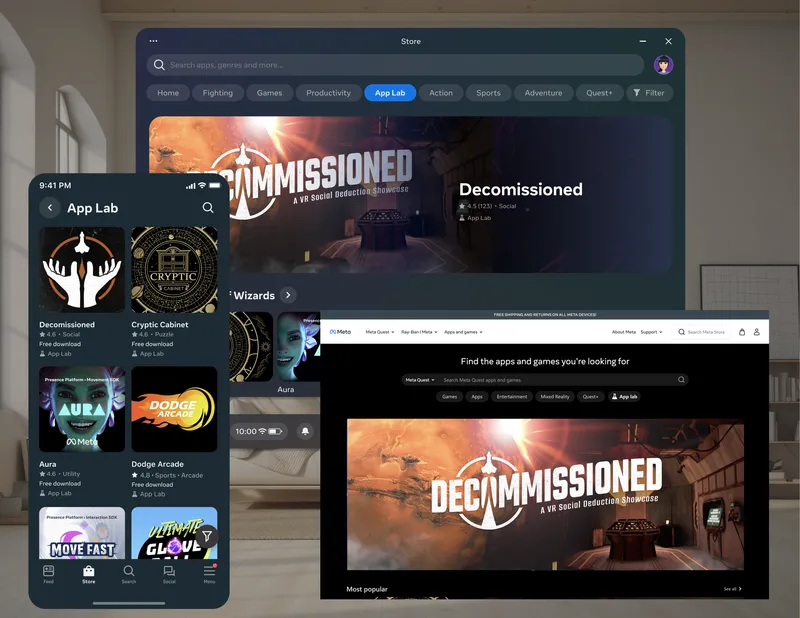Simula One is a $2699 standalone Linux headset with a “no earlier than Q4 2022” shipping target.
While all current standalone VR headsets use Qualcomm Snapdragon chips, Simula One will use a Intel i7 chip intended for high end laptops – the most powerful chip in any announced standalone headset. It will come preloaded with SimulaOS, an open source Linux distribution designed for VR. Using an x86 architecture chip means any existing Linux desktop apps should run on the headset – Qualcomm chips use the ARM architecture, which enables better power efficiency but can’t run PC applications.
Here are the specifications according to Simula:
- Displays: Dual 2448×2448 LCDs at 90 Hz
- Lenses: 100° three-element non-fresnel with 55mm-77mm separation adjustment
- Cameras: 2x wide-angle high-resolution color
- Processor: 8-core 4.7 GHz Intel i7-1165G7 CPU with integrated Iris XE GPU
- RAM: 16GB DDR4
- Storage: 1TB NVMe SSD
- Wireless: Wi-Fi 6 + Bluetooth 5.2
- Ports: 1x USB-C (Thunderbolt 4) + 2x USB-C (3.2 Gen 2) + 2x USB-A (3.2) + 3.5mm Audio Jack
Simula’s pitch isn’t a Meta Quest competitor for gaming. This headset is meant as a productivity-focused alternative to a laptop running Linux. Laptops limit you to the small built in screen, whereas SimulaOS offers dozens of virtual screens of whatever size you want – just connect a Bluetooth keyboard and position windows around you with hand tracking. It’s essentially a head mounted PC.
The operating system lets you choose between a virtual environment and seeing your real room via the high resolution color cameras. The 2448×2448 displays are higher resolution than any other headset on the market except for Varjo Aero, so even small text should be legible.
Meta has been updating its Quest 2 with productivity focused features like tracked keyboards, multiple resizable browser windows, and progressive web app support, but Quest has only 6GB of RAM and a much less powerful CPU that can only run Android apps, not desktop applications such as Integrated Development Environments for developing software. That said, Meta plans to launch a higher end headset this year and rumors suggest Apple will launch its own headset with PC-level performance next year.
For those worried about obsolescence, Simula says the rear computing hardware is detachable so could theoretically be upgraded without needing an entirely new headset. Simula One can also be used in Tethered Mode, where it acts as a SteamVR headset for a desktop gaming PC.
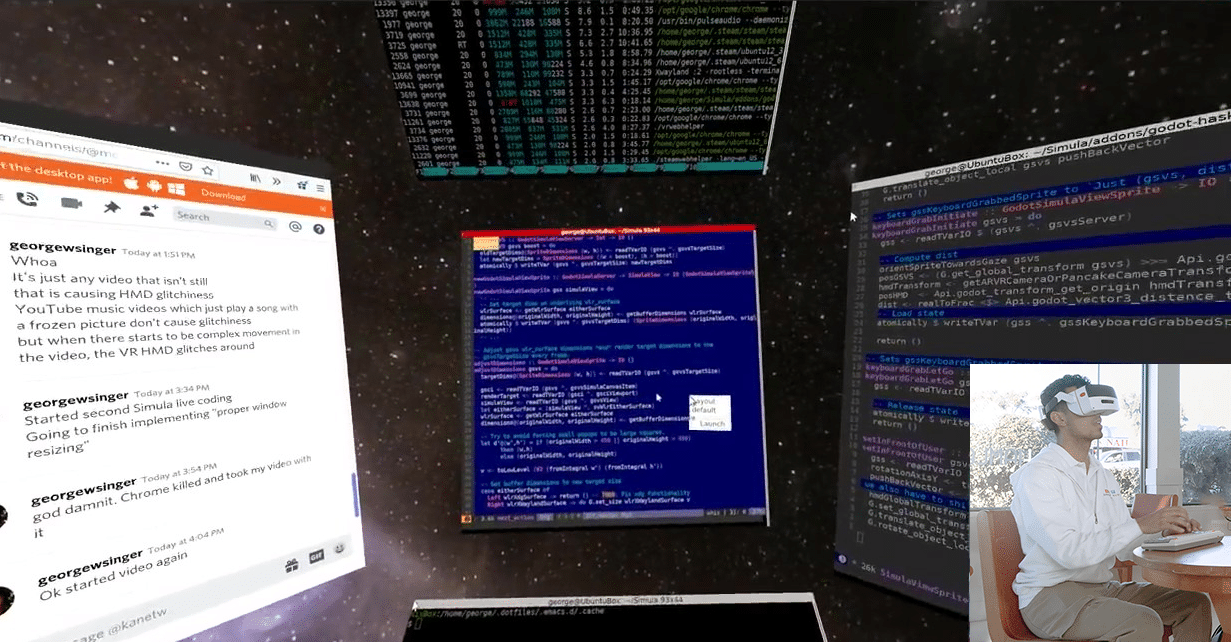
Simula originally planned to launch a Kickstarter campaign, which we had been awaiting, but the company instead decided to open direct pre-orders instead. $2699 is a lot of money, but the value proposition here is getting what amounts to a $1000 Linux laptop with thousands of dollars worth of (virtual) monitors.
It’s important to note that Simula is a startup company with no track record of shipping hardware. Successfully and profitably manufacturing technology at scale is notoriously challenging, and many hardware startups end up folding before delivering. Simula says pre-orders are only refundable for 1 week and warns it “cannot with certainty predict there will be no delays”. The company provides a preorder agreement which states “we only guarantee delivery of our preorder Offerings by end of 2023”.

